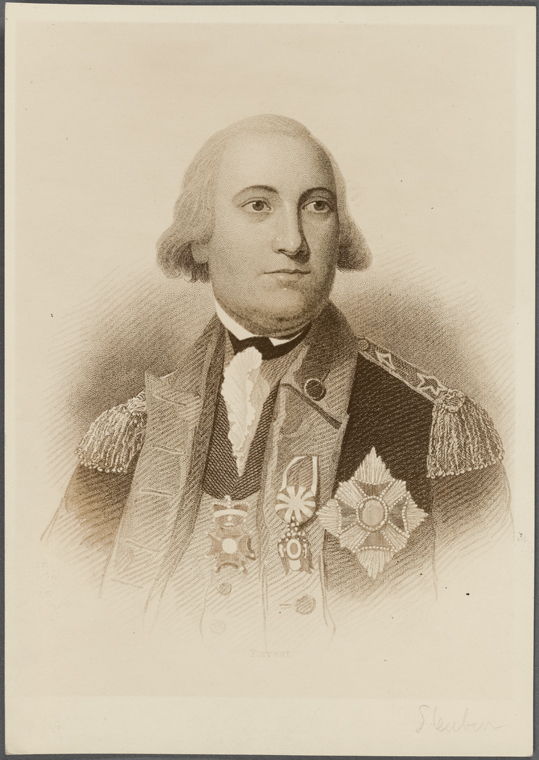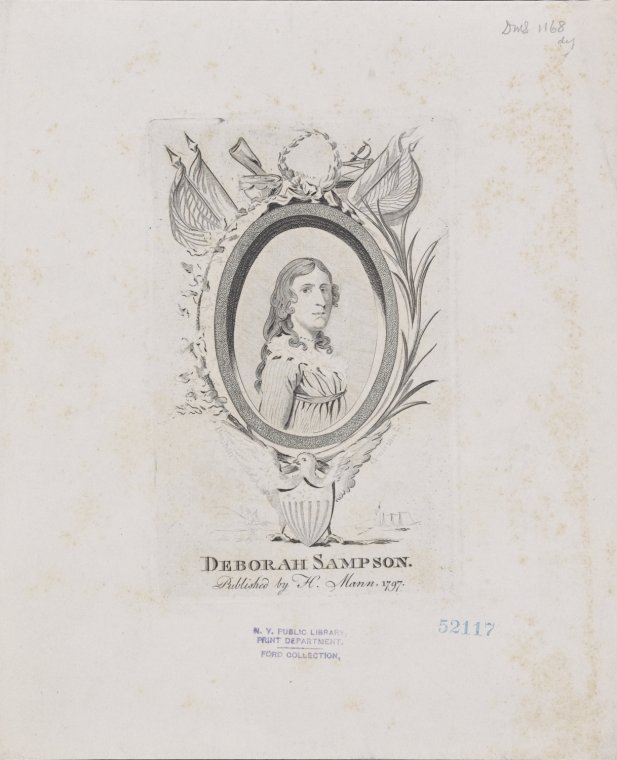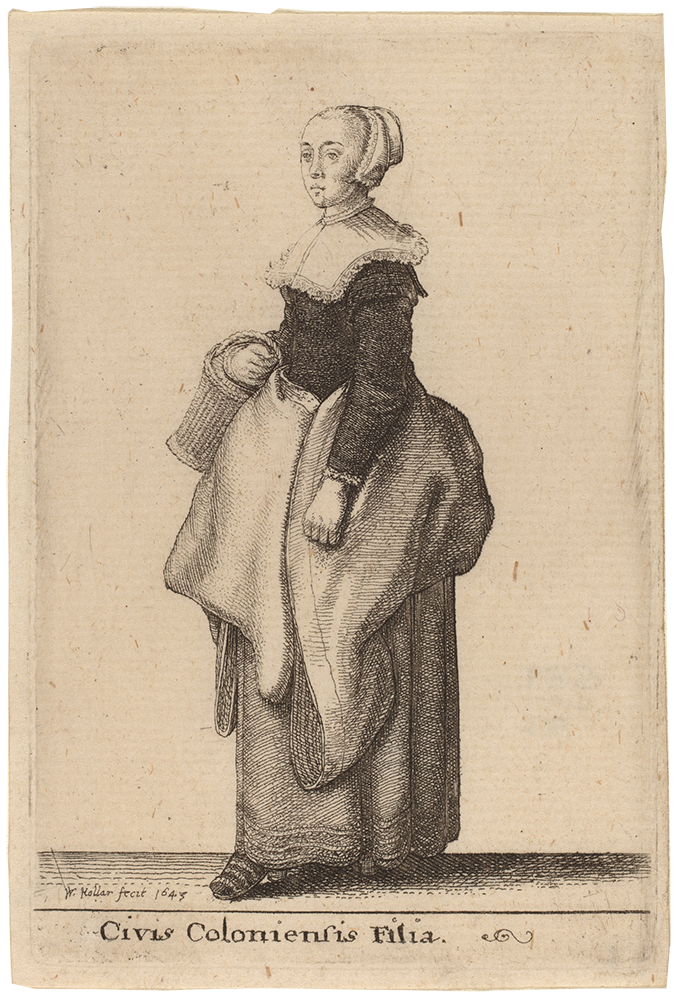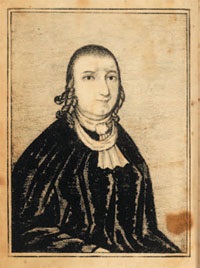Introduction
People across the spectrum of gender and sexual identity have always contributed to American history, and it's impossible to tell the complete story of the American Revolution without LGBTQ+ history.
There are challenges that come with researching sexuality and gender identity during the Colonial period. Social and legal discrimination prevented many people from identifying as queer, and it is difficult to say whether historical figures would have identified with modern language describing gender or sexual orientation.
However, interrogating our understanding of queer identity allows us to view history with a broader view of human relationships and expression.
From right to left: Baron Friedrich von Steuben, Deborah Sampson, Thomas(ine) Hall, The Public Universal Friend
NYPL Digital Collections Image ID: 4057550; NYPL Digital Collections Image ID: 2019613; New York Historical Society; Portrait from David Hudson's 1821 biography
Baron Friedrich von Steuben was an American military officer who served as inspector general and trained the Continental Army. Some historians believe his intense and emotional friendships with other military officers Benjamin Walker and William North were romantic.
Deborah Sampson was a Massachusetts colonist who dressed as a man to serve in the Continental Army under the name "Robert Shurtliff." She was one of several other women who subverted gender roles to fight in the American Revolution, along with Cathay Williams; Anna Maria Lane; Mary Ludwig Hays; and Molly Corbin.
Thomas(ine) Hall was an intersex person who lived in colonial Virginia. Declared to be both a man and a woman by the Quarter Court of Virginia in 1629; Thomas(ine) was required to wear the clothing of both sexes.
The Public Universal Friend was an American preacher born as Jemima Wilkinson. Following a severe illness, they identified as genderless and rejected all gendered pronouns and birth name.
Examples of Primary Sources
- Steuben Collection, 1781-1784(ca.). Letters, in French, written by Friedrich Wilhelm, Baron von Steuben, available through New York State Historical Documents
- Local History Collection, two reels of microfilm of the Jemima Wilkinson papers, 1771-1849., New York State Historical Documents
More Archival Collections
To locate primary sources, consider archives with specialized collections.
- LGBT Life with Full Text, available onsite at the library
- America: History and Life with Full Text, available onsite at the library
- Digital Transgender Archive
- LGBT Records at the National Archives
- Honoring Historic LGBTQIA+ Voices at Colonial Williamsburg
- 1600s-1700s, OutHistory.org
Or, search ArchiveGrid for archival collections of more than 1,400 institutions including libraries, museums, and historical societies.
Suggested Search Terms and Recommended Titles
Find resources in the NYPL Research Catalog by keyword searches or try the following subjects:
Homosexuality -- United States -- History
Gays -- United States -- History
Steuben, Friedrich Wilhelm Ludolf Gerhard Augustin, Baron von, 1730-1794
Gannett, Deborah Sampson, 1760-1827
Want to find these books at a library near you? Try searching WorldCat!
The Public Universal Friend by
ISBN: 9780801454134Publication Date: 2015-11-18Amid political innovation and social transformation, Revolutionary America was also fertile ground for religious upheaval, as self-proclaimed visionaries and prophets established new religious sects throughout the emerging nation. Among the most influential and controversial of these figures was Jemima Wilkinson. Born in 1752 and raised in a Quaker household in Cumberland, Rhode Island, Wilkinson began her ministry dramatically in 1776 when, in the midst of an illness, she announced her own death and reincarnation as the Public Universal Friend, a heaven-sent prophet who was neither female nor male.A Queer History of the United States by
ISBN: 9780807044391Publication Date: 2011-05-10Winner of a 2012 Stonewall Book Award in nonfiction The first book to cover the entirety of lesbian, gay, bisexual, and transgender history, from pre-1492 to the present. This engrossing and revelatory history will make readers appreciate just how queer America really is.Long Before Stonewall by
Call Number: JFE 07-5932ISBN: 9780814727492Publication Date: 2007-07-012007 Choice Outstanding Academic Title Although the 1969 Stonewall riots in New York City symbolically mark the start of the gay rights movement, individuals came together long before the modern era to express their same-sex romantic and sexual attraction toward one another, and in a myriad of ways. Some reflected on their desires in quiet solitude, while others endured verbal, physical, and legal harassment for publicly expressing homosexual interest through words or actions. Long Before Stonewall seeks to uncover the many iterations of same-sex desire in colonial America and the early Republic, as well as to expand the scope of how we define and recognize homosocial behavior.



